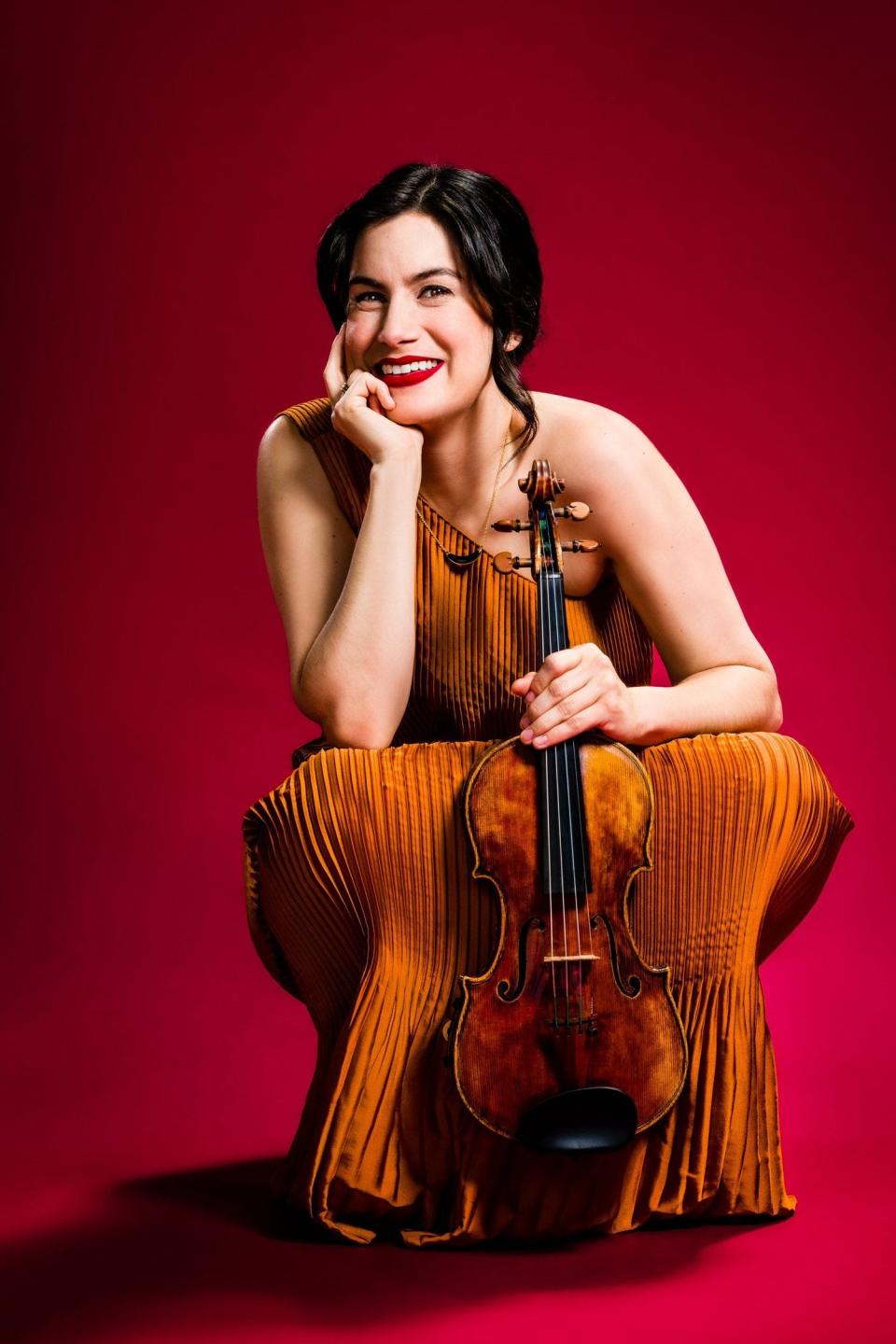Adrian Symphony Orchestra opens season of Stravinsky Sunday
- Oops!Something went wrong.Please try again later.
- Oops!Something went wrong.Please try again later.
ADRIAN — By every standard in the classical music world, Igor Stravinsky was hands-down the most influential composer of the 20th century. There was music “before” Stravinsky — and music “after” him.
That’s why the Adrian Symphony Orchestra decided to undertake a season-long exploration of his music this year, beginning with its opening concert at 3 p.m. Sunday, Oct. 8, at Adrian College’s Dawson Auditorium.
Tickets are $37/$31/$23 for adults, $35/$29/$23 for senior citizens, and $19/$16/$12 for students, and are available online at adriansymphony.org, by calling 517-264-3121, or at the door beginning two hours before concert time.
A Classical Conversation about the music on Sunday’s program, hosted by ASO Music Director Bruce Anthony Kiesling, begins at 2:10 p.m. that day and is free to all ticketholders.
The program features Stravinsky’s “Firebird” Suite, along with the Overture to “Ruslan and Ludmila” by Glinka and Bernstein’s “Serenade (after Plato’s Symposium)” with guest artist Danielle Belen on violin.

“It’s a big program,” Kiesling said, “and none of it’s easy.”
“Firebird” started out as a ballet score for the Ballets Russes company, founded and directed by the legendary Serge Diaghilev.
First performed in 1910, the ballet is based on Russian folk tales about a mythical bird from whom a prince steals a feather. The feather summons the Firebird to return — with both tragic and good results.
Stravinsky followed up his ballet score with a series of suites, each of them somewhat different and with slightly different orchestration. Sunday’s concert features the 1945 version, which has more movements and a slightly reduced orchestration than the other two, earlier, versions.
“The original has so many instruments it’s actually hard to fit on our stage,” Kiesling said, and the added movements in the later edition help flesh out the story more.
The music is quite recognizable, even to people who don’t think they know it, and highly approachable.
“It’s not abstract, like some of the later (Stravinsky) works we’ll hear later in the season,” Kiesling said, adding that the music does a fantastic job of capturing the story’s emotional arc because Stravinsky “was such a great orchestrator. He did color so very, very well.”
Adrian Symphony Orchestra season schedule
Doing an entire season that revolves around one composer to this extent is something of an experiment for the ASO.
“We’ve been talking about our audience, and giving them a throughline for the season to really instill appreciation of an artist, especially one as important as this one,” Kiesling said.
Each classical concert of the year will feature a different Stravinsky work, all of them based on his ballet scores; after “Firebird,” there’s “Petrushka” in November and “Pulcinella” in March 2024, all building up to the season-ending performance of the massive “Rite of Spring” in May.
“I do hope that we share some great music and that by the time we get to May the audience will have an appreciation of a really great artist,” Kiesling said.
As for the piece that opens Sunday’s concert, the “Ruslan and Ludmila” Overture, it’s one of the most popular curtain-raisers and even season-starters — as it is in this case — that there is.
“There are three great curtain-raisers (in classical music),” Kiesling said. “There’s (Bernstein’s) ‘Candide,’ there’s the ‘Festive Overture’ (by Shostakovich) and there’s this one.”
The actual opera “Ruslan and Ludmila” is not very often performed. But Glinka’s overture has become a standard part of the repertoire and a real crowd-pleaser with its furious tempo and orchestral fireworks.
“It’s a beast to play,” Kiesling said. “All those notes are just relentless.”
While considerably lesser-known than either the Glinka or Stravinsky selections, Bernstein’s “Serenade” is nevertheless a work that Kiesling thinks Sunday’s audience will really enjoy — especially coming as it will from this concert’s particular guest artist.
Belen, a member of the University of Michigan violin faculty, is a 2008 Sphinx Competition winner and recipient of the 2014 Sphinx Medal of Excellence. She has soloed with major orchestras across the U.S. including the Pittsburgh, Atlanta, Nashville and San Francisco symphonies, the Boston Pops, the Florida Orchestra, and the Cleveland Orchestra.
The work is in five movements, with the solo violin performing the opening theme and then reappearing, concerto-like, throughout the piece.
Each movement represents an ancient Greek speaker, such as Socrates and Aristophanes, all holding forth on the topic of love in the spirit of Plato’s dialogue “The Symposium.” None of the five vignettes is especially long. One, in fact, only takes about 90 seconds to perform, “but it’s a tricky 90 seconds,” Kiesling said.
The ASO’s music director said he’s very glad that Belen chose this particular piece for her Adrian performance.
“It’s been so great to dig into it. It’s deep, and heady at times, but it never bogs down,” he said. “And I’m so excited to hear how Danielle approaches it.”
If you go
WHAT: “Firebird,” the Adrian Symphony Orchestra’s season-opening performance featuring music by Glinka, Bernstein and Stravinsky
WHEN: 3 p.m. Sunday, Oct. 8. A Classical Conversation begins at 2:10 p.m.
WHERE: Dawson Auditorium, Adrian College
TICKETS: $37/$31/$23 for adults, $35/$29/$23 for senior citizens, $19/$16/$12 for students
HOW TO ORDER: Online at adriansymphony.org, by calling 517-264-3121, at the door beginning two hours before the concert
This article originally appeared on The Daily Telegram: Adrian Symphony Orchestra opens season of Stravinsky Oct. 8

